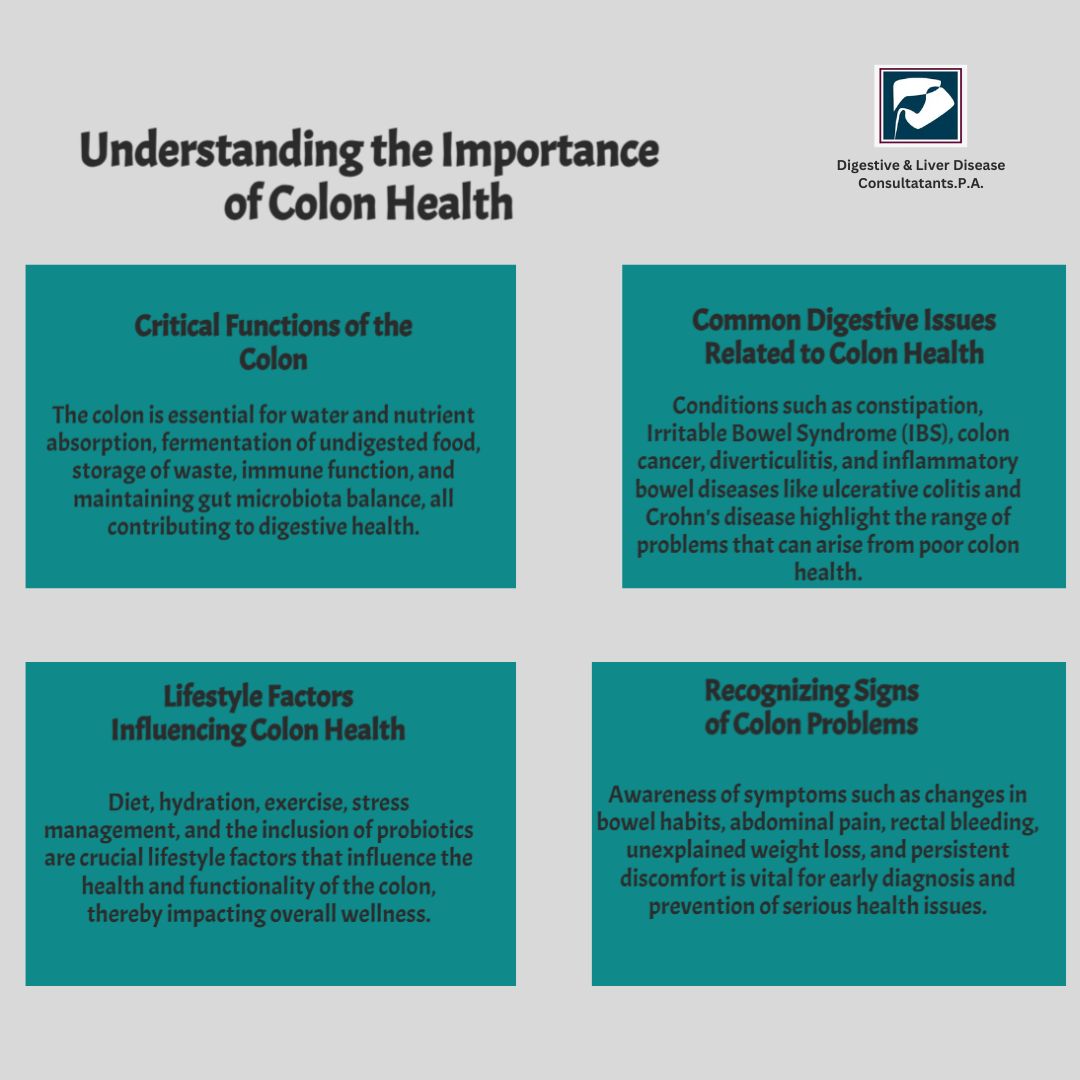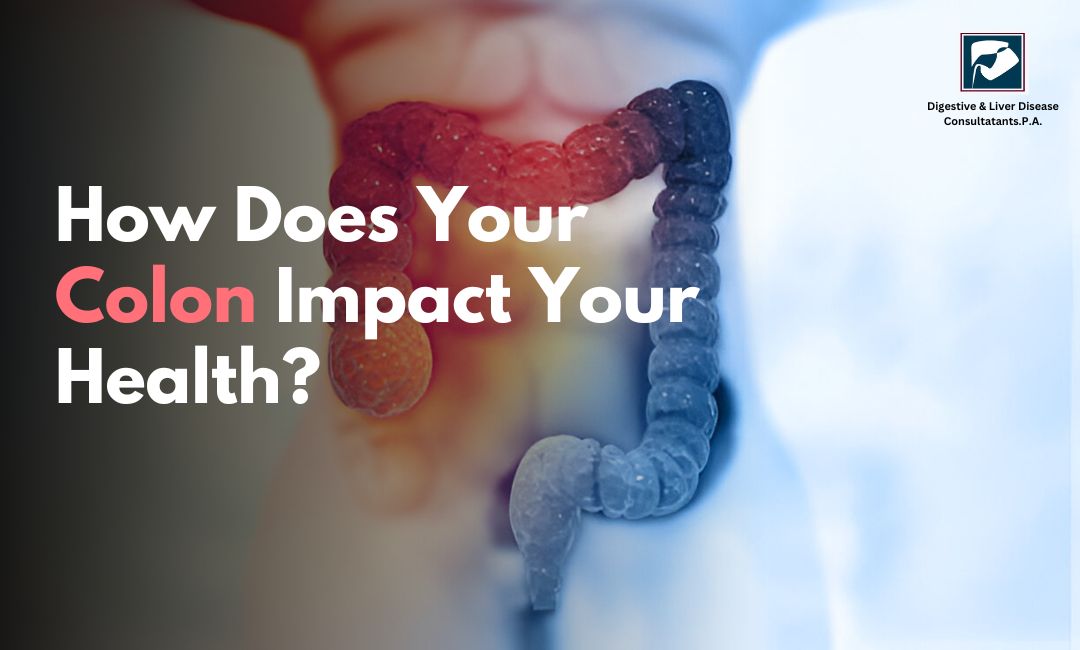Your colon, often referred to as the large intestine, plays a significant role in your overall health. It's a part of your digestive system responsible for absorbing water and salts from food, forming solid waste, and playing a vital role in your gut health. A healthy colon is essential for a well-functioning digestive system, and any problems with the colon can lead to a range of health issues. Understanding how your colon impacts your health can help you make better choices for your well-being.
The Role of the Colon in Your Health
The colon is the final part of your digestive tract, following the small intestine. It’s responsible for several important functions, including:
Water and Nutrient Absorption: After nutrients are absorbed in the small intestine, the colon absorbs the remaining water and salts. This helps to form solid waste.
Fermentation of Unabsorbed Food: The bacteria in your colon ferment undigested food particles, producing gases and short-chain fatty acids that are beneficial for your gut.
Bowel Movements: The colon stores waste before it is eliminated from the body. The muscles in the colon contract and relax to move waste towards the rectum, where it is eventually excreted.
Immune Function: Your colon is home to a large portion of your body’s immune system. The gut-associated lymphoid tissue (GALT) helps to protect your body from harmful bacteria and other pathogens that could harm your health.
Gut Microbiota: Your colon is teeming with trillions of bacteria, often referred to as the gut microbiota. These bacteria help digest certain foods and keep your digestive system in balance. A healthy balance of gut bacteria is essential for proper colon function and overall health.
Colon Health and Digestive Problems
A variety of conditions can affect your colon, leading to digestive problems. Here are some of the most common issues:
Constipation: This occurs when the colon absorbs too much water from the waste material, making the stool hard and difficult to pass. A sluggish colon, poor diet, dehydration, and lack of physical activity can all contribute to constipation.
Irritable Bowel Syndrome (IBS): IBS is a functional disorder of the colon that causes symptoms like abdominal cramps, bloating, diarrhea, and constipation. The exact cause is unclear, but stress, food sensitivities, and other factors can trigger flare-ups.
Colon Cancer: Colon cancer is one of the leading causes of cancer-related deaths. It usually begins as small polyps on the inner lining of the colon, which can develop into cancer over time. Regular screening is essential for detecting colon cancer early and improving treatment outcomes.
Diverticulitis: This condition occurs when small, bulging pouches (diverticula) form in the wall of the colon and become inflamed or infected. Symptoms include abdominal pain, fever, and changes in bowel habits.
Ulcerative Colitis: Ulcerative colitis is a type of inflammatory bowel disease (IBD) that causes inflammation and sores (ulcers) in the colon. It leads to symptoms like diarrhea, rectal bleeding, and abdominal pain.
Crohn’s Disease: Another form of IBD, Crohn’s disease can affect any part of the digestive tract but often impacts the colon. It causes inflammation, leading to symptoms like diarrhea, weight loss, and fatigue.
The Link Between Colon Health and Overall Wellness
Maintaining a healthy colon is vital for your overall well-being. A variety of lifestyle factors can affect the health of your colon and its ability to function properly:
Diet: A healthy diet rich in fiber is one of the best ways to promote colon health. Fiber helps keep things moving through the digestive tract, preventing constipation and promoting regular bowel movements. Foods like fruits, vegetables, whole grains, and legumes are all excellent sources of fiber.
Hydration: Drinking plenty of water is essential for your colon's health. Staying hydrated ensures that waste moves smoothly through the digestive system and prevents constipation.
Exercise: Physical activity plays a crucial role in maintaining a healthy colon. Regular exercise can help prevent constipation and improve overall digestive function.
Stress Management: Chronic stress can negatively impact your digestive system, leading to issues like IBS or an upset stomach. Taking time to relax, meditate, and manage stress can improve your gut health.
Probiotics and Gut Health: Probiotics are beneficial bacteria that help maintain the balance of microbes in your gut. They can be found in foods like yogurt, kefir, and sauerkraut, or taken as supplements.
Signs of Colon Problems
Many people are unaware of their colon health until symptoms arise. It’s important to pay attention to any unusual signs, as they may indicate a problem with your colon. Some warning signs include:
- Changes in bowel habits (diarrhea, constipation, or a combination)
- Abdominal pain or bloating
- Rectal bleeding or blood in the stool
- Unexplained weight loss
- Fatigue or weakness
- Persistent cramping or discomfort
If you experience any of these symptoms, it’s essential to consult a doctor promptly. Early detection and treatment can help prevent more serious health issues from developing.

Preventing Colon Issues
To keep your colon in top shape, consider these tips:
- Eat a high-fiber diet: Include plenty of whole grains, fruits, and vegetables.
- Stay hydrated: Drink enough water throughout the day.
- Exercise regularly: Aim for at least 30 minutes of physical activity most days of the week.
- Limit processed foods: Cut back on foods high in fat, sugar, and artificial additives.
- Avoid smoking and excessive alcohol: Both of these can contribute to colon problems.
- Schedule regular screenings: If you're over the age of 50 (or have a family history of colon cancer), regular colon screenings like colonoscopies can help detect early signs of colon cancer.
Digestive & Liver Disease Consultants, P.A.
At Digestive & Liver Disease Consultants, P.A., we specialize in the diagnosis and treatment of conditions related to the digestive system and liver. Our team of experienced gastroenterologists is dedicated to providing comprehensive care for a range of digestive issues, including colon health concerns. Whether you're dealing with constipation, IBS, or need a routine colon cancer screening, we are here to help.
If you’re experiencing digestive problems or have concerns about your colon health, don’t wait to seek help. Our team is ready to provide you with the care and support you need to live a healthy life.
Conclusion
Your colon plays a crucial role in your overall health, from digesting food to supporting your immune system. By understanding its impact on your health, you can take proactive steps to maintain a healthy digestive system.
If you suffer from digestive issues or are concerned about your colon health, don’t hesitate to reach out to Digestive & Liver Disease Consultants, P.A... We are here to help you on your journey toward better digestive health.






